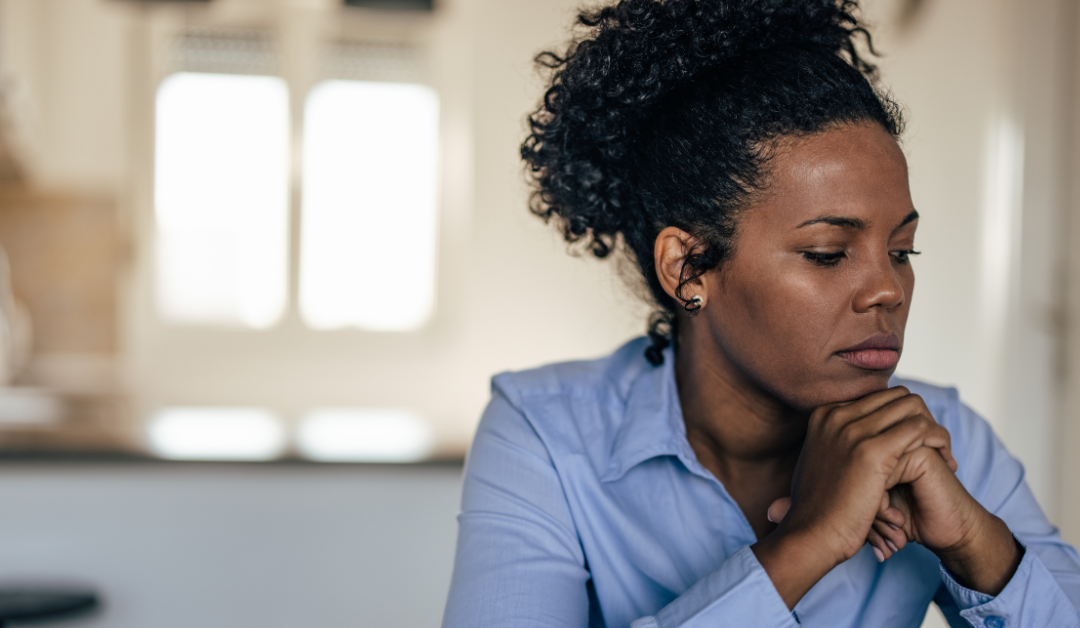You wake up feeling heavy, like your limbs are made of cement. Or maybe you wake up feeling jittery, your mind already racing with worst-case scenarios before your feet even hit the floor. Sometimes it’s both – anxiety and depression.
Maybe you’ve lost interest in the things you used to enjoy. Or maybe you’re going through the motions of life, but it feels like you’re constantly holding your breath, bracing for something bad to happen.
If any of this sounds familiar, you’re not broken.
You’re not lazy, dramatic, or “too sensitive.” You’re human and you may be living with depression and anxiety.
These two often travel together, like unwelcome roommates who keep knocking on the door when you’re just trying to get through the day.
And if you’re here reading this, take a deep breath. This is a safe space to understand what you’re feeling, why it happens, and how you can begin to navigate it with compassion and support.
How Common Is Depression and Anxiety?
Let’s start here: depression and anxiety are very common.
In fact, the World Health Organization estimates that more than 280 million people live with depression globally, and over 300 million live with anxiety. In the U.S. alone, anxiety disorders affect about 1 in 5 adults every year, and many experience both conditions at the same time.
So if you’re struggling, you are far from alone.
But here’s what’s tricky: because both depression and anxiety can be internal experiences, they don’t always “look” like what we expect. People might assume someone with depression stays in bed all day or that someone with anxiety is always visibly panicking. However, many people present as “high-functioning” and are able to hide their symptoms for depression behind a smile or productivity. That’s why it’s so important to talk about it openly, without shame or stigma. The more we normalize these conversations, the more people feel seen, and the more they can get support.
What Is the Difference Between Anxiety and Depression?
Though depression and anxiety often go hand in hand, they’re not the same thing.
Anxiety is often rooted in fear about what might happen, what could go wrong, or how things might spiral out of control. It can show up as racing thoughts, restlessness, trouble sleeping, stomach issues, or a constant sense of dread.
You might feel like your brain won’t stop spinning, or like you’re stuck in “fight or flight” mode.
Depression, on the other hand, is more of a shutdown. It often brings feelings of hopelessness, sadness, low energy, and disinterest in things you once cared about. It might feel like the world is muted and everything, even the small stuff feels overwhelming or pointless.
But the lines can blur. Someone with anxiety might get so overwhelmed that they burn out and fall into depression. And someone with depression might become anxious about falling behind in life. The overlap is common, and it’s okay if your experience doesn’t fit neatly into one box.
The important thing is not the label. It’s acknowledging how you feel and getting support for it.
How Do Depression and Anxiety Impact BIPOC Communities?
While depression and anxiety don’t discriminate, the way they’re experienced and how people are treated when they seek help can be deeply influenced by race, culture, and systemic barriers.
For BIPOC communities, mental health challenges often intersect with real-world stressors like discrimination, generational trauma, financial inequity, and lack of access to culturally competent care. That means the weight people carry isn’t just internal—it’s also shaped by the world around them.
You might be the strong one. The one who’s always showing up for others. The one who was taught to push through, to not complain, to keep your head down and keep going. And because of that, it might feel hard or even scary to name what you’re going through.
In many cultures, mental health isn’t openly discussed. It can be stigmatized, misunderstood, or brushed off as weakness. But feeling overwhelmed doesn’t mean you’re weak. Feeling hopeless doesn’t mean you’re broken. You are navigating complex systems that often weren’t built to support your healing.
We want to say this clearly: depression and anxiety in BIPOC communities is real, valid, and worthy of care.
That care should be inclusive. That care should be culturally aware. That care should honor your lived experiences and not dismiss them.
Whether it’s through therapy, community support, spiritual practices, or safe spaces that reflect your identity you deserve to be supported in a way that affirms who you are.
How to Deal with Anxiety and Depression?
Here’s where we get practical. While there’s no one-size-fits-all solution, there are ways to begin easing the grip of depression and anxiety one step at a time.
1. Start With Gentle Awareness
Notice what you’re feeling without judgment. “I’m feeling really low today.” “My chest feels tight.” Naming it helps you understand it and understanding it is the first step toward caring for it.
2. Reach Out to Someone Safe
Whether it’s a therapist, a friend, a family member, or a support group—talking about how you’re feeling can lift the weight. You don’t have to explain it perfectly. You just have to start.
3. Build a Soothing Routine
Create small, consistent habits that help your nervous system feel safe. That might mean drinking water, going for a short walk, journaling your thoughts, or practicing breathwork for five minutes. Consistency matters more than intensity.
4. Limit Overwhelm
When you’re anxious or depressed, everything can feel like too much. Try to simplify your to-do list. Focus on one thing at a time. And remember: resting is productive, too.
5. Challenge the Critical Voice
That voice that says, “You’re failing,” “You’re not enough,” or “You should be doing more”? It’s not the truth. It’s a symptom. When it shows up, try to pause and respond with compassion instead: “I’m doing my best. It’s okay to move slowly.”
6. Seek Professional Help
Therapy isn’t just for crises. It’s for support, growth, and healing through all the experiences of your life. A therapist can help you untangle your thoughts, validate your emotions, and build tools that actually work for you.
Medication can also be a helpful option for many. There’s no shame in needing additional support to regulate your brain chemistry.
Final Thoughts: You Deserve Support and You Deserve to Feel Better
Depression and anxiety don’t define you. They don’t make you less capable, less lovable, or less worthy of good things.
They are part of your experience, but they are not the whole story.
There is space for your healing. There is space for your joy. There is space for you to rest, to speak up, to be seen, and to be supported. Rest does not need to happen because you’ve “earned” it by being strong. Rest is a human requirement for a thriving life.
So if today feels hard, take a deep breath. You are doing the best you can. And that’s enough.
You don’t have to have it all figured out. You just have to keep showing up for yourself, one moment at a time.
And remember: You are not alone. You are loved. And you’re allowed to ask for help.


